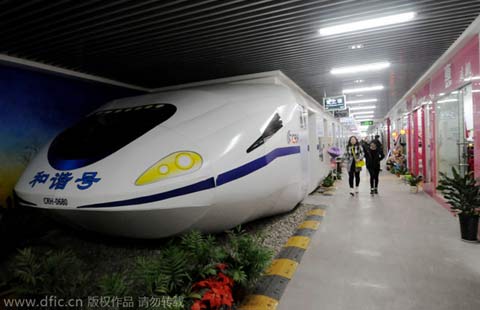China's multi-billion-dollar 'haitao' splurge
Updated: 2015-01-05 09:55
(Xinhua)
|
||||||||
Some pilot cities have also simplified their Customs regulations. In south China's Guangzhou, e-retailers can immediately register overseas goods with Customs when a Chinese buyer makes a deal, so tariff collection and other procedures are faster.
Under Guangzhou's system, Chinese discount retailer Vip.com completed Customs clearance for 800 watches in just 40 minutes.
On Nov 11, the 22nd Asia-Pacific Economic Cooperation Economic Leaders' Meeting in Beijing supported the trade with the APEC Cross Border E-Commerce Innovation and Development Initiative.
New opportunities
For e-commerce giant Amazon and its competitors, including NYSE-listed Alibaba, 2014 saw new opportunities to tap into this market.
On Aug 20, Amazon China announced it would begin cross-border online shopping in the Shanghai Free Trade Zone. Chinese buyers could go to Amazon websites in the US and other countries to buy online and receive shipments in a week to 10 days with lower delivery costs.
Amazon has tactically changed the "proxy" mode of overseas online shopping, whereby a Chinese buyer pays a proxy to buy goods abroad, and the proxy dispatched the goods as personal items.
The proxy mode has several risks, such as fake goods provided by the proxy, delivery delays, and documentation and tax issues during Customs clearance. If all goes smoothly, a shipment by air from the US could arrive in one month, or 20 days from Europe, 10 days from Japan.
Amazon's bonded warehouses mode is easier and cheaper. With the help of data collected over the years, Amazon can forecast orders and send goods in advance by sea to Shanghai Free Trade Zone bonded warehouses. Amazon sends the items from Shanghai after a Chinese buyer makes a purchase.
Big players in China's e-commerce sector, such as Alibaba and NASDAQ-listed 360buy, have followed Amazon to open haitao channels.
Moreover, Alibaba uses its global payment system, Alipay, to bring in more players from abroad, including US retailing giants Macy's, Bloomingdale's, Saks Fifth Avenue and Neiman Marcus, and luxury brands like Prada and Hugo Boss.
Chinese consumers can log on to foreign retail websites and pay in renminbi through Alipay, which includes duties and delivery costs. Then they wait a week or two to receive the goods, which can be tracked online. This also avoids the risks of using proxies.

 Harbin gets ready for ice and snow festival
Harbin gets ready for ice and snow festival
 Shanghai, Nanjing heat up just before predicted cold
Shanghai, Nanjing heat up just before predicted cold
 Police frontier force conducts military exercise
Police frontier force conducts military exercise
 Carpenter creates e-vehicle with wood in Shenyang
Carpenter creates e-vehicle with wood in Shenyang
 Thousands gather in NYC for funeral for slain police officer
Thousands gather in NYC for funeral for slain police officer
 Scars of honour
Scars of honour
 Mall turns shops into rail carriages
Mall turns shops into rail carriages
 Martial arts conference to be held in Georgia
Martial arts conference to be held in Georgia
Most Viewed
Editor's Picks

|

|

|

|

|

|
Today's Top News
What's in store for the stock market in 2015?
Alleged serial killer stands trial in North China
College uses Shanghai stampede to justify its policies
China braces for slower but better growth in 2015
New York mourns slain Chinese-American police officer
Chinese VP attends Brazilian president's 2nd-term inaugural
Brazil uses antidumping measures against China
Thousands gather in NYC to see off slain policeman
US Weekly

|

|








